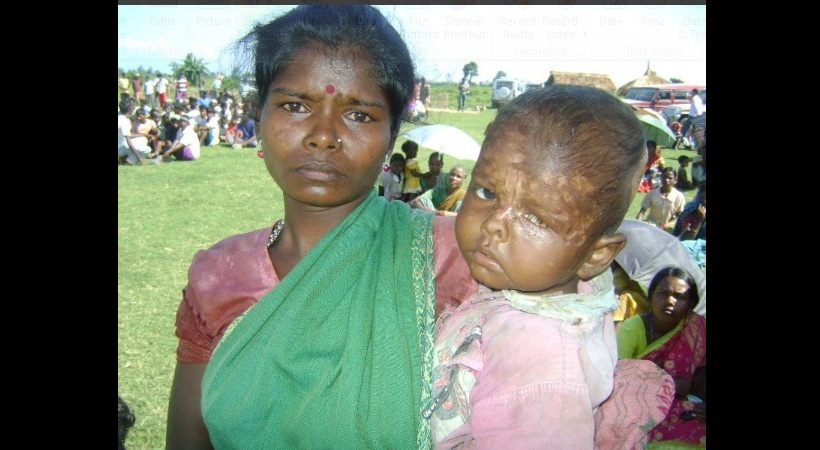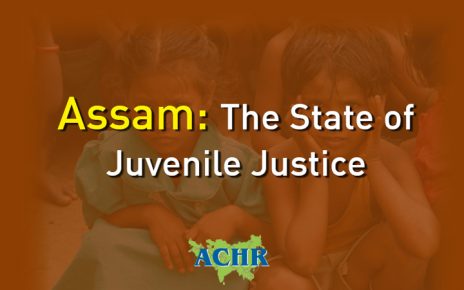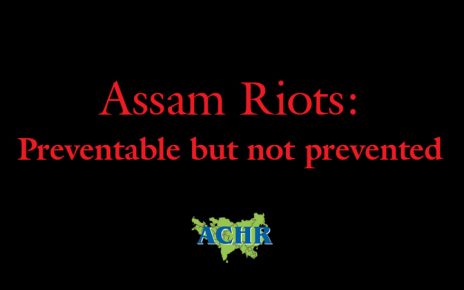New Delhi: Asian Centre for Human Rights in a brief report “Assam: The largest conflict induced IDPs of the world in 2014 reel under a massive humanitarian crisis “ released today following field visit to the affected areas stated that over 3,00,000 internally displaced persons (IDPs) of Assam, who are the largest conflict induced IDPs of the world in 2014, are currently reeling under a man-made humanitarian crisis in 85 relief camps in four districts of Assam i.e. Sonitpur, Kokrajhar, Udalguri and Chirang districts. The IDPs, mainly Adivasis, have been fleeing following massacre of over 80 Adivasis by the National Democratic Front of Bodoland of Songbijit faction (NDFB-S) on 23 December 2014 in Sonitpur, Kokrajhar and Chirang districts of Assam.
“The State government of Assam has been hesitant to fully extend humanitarian assistance to all the IDPs in order to prevent more displacement and reduce cost of rehabilitation.” – stated Asian Centre for Human Rights.
A team of Asian Centre for Human Rights (ACHR) assisted by the Adivasi civil society organisations visited the affected areas on 27th December 2014 and the team had limited access as curfew was imposed in Sonitpur and Udalguri districts, and the police did not allow visit to the interior places for security reasons. The Team visited Jiagabharu High School Relief Camp, Hugrajuli Relief Camp and Tinisuti Relief Camp.
The inmates of all the camps had similar stories to tell: the State government failed to provide relief including warm clothes, baby food, safe drinking water and no provisions for pregnant women and lactating mothers while some food items were supplied by local public and organisations. Sanitation and hygiene are almost non-existent.
Asian Centre for Human Rights recommended to the State Government of Assam to fully extend humanitarian assistance including access to adequate shelter, food, utensils, baby food, clothes, health care, water facility, toilets, etc to all the displaced persons irrespective of whether their villages were directly attacked or not by the NDFB(S); rehabilitate the displaced persons by providing adequate assistance such as housing assistance per family, food rations for six months; ensure that no relief camp is forcibly closed down and inmates are not forced to leave the relief camps; and provide security to the IDPs voluntarily willing to return to their villages with a clear programme of action including deployment of security forces to ensure non-repetion of such heinous attacks. [Ends]




